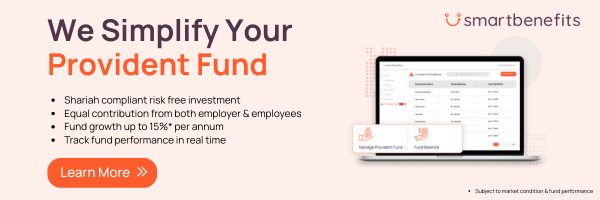For employees in Pakistan, the Provident Fund is more than just a workplace benefit—it’s a financial safety net that grows quietly in the background. Let’s break it down and explore how this fund can help secure your future, one paycheck at a time.
How will you manage your finances when you retire? This is a question many people avoid until it’s too late. Planning for the future can feel overwhelming, but one of the simplest and most effective ways to begin is by understanding the Provident Fund (PF). Let’s break it down and explore how this fund can help secure your future, one paycheck at a time.
What is a Provident Fund?
Consider the Provident Fund as a structured and mandatory savings plan that offers substantial advantages to both employees and their employers. Each month, a predetermined percentage of your salary—usually stipulated by law—is automatically deducted and deposited into your Provident Fund account. In addition to this contribution, your employer is also required to match that amount, effectively doubling your savings for that month.
This combined pool of funds is then strategically invested in various financial instruments, including equities, bonds, and real estate. The objective of these investments is to generate a steady return over time, allowing your savings to grow significantly, often outpacing inflation.
Upon reaching retirement age or under specific qualifying conditions—such as permanent disability or critical illness—you can withdraw the accumulated amount from your Provident Fund. This lump sum can provide substantial financial security, helping to alleviate concerns about income during retirement or unexpected life events. The growth of your Provident Fund not only helps in securing your future but also promotes responsible financial planning throughout your working life.
In Pakistan, Provident Funds operate under the Provident Funds Act, 1925, providing legal protection and clear guidelines. For many employees, this fund represents a cornerstone of financial security.
Key Benefits of a Provident Fund
1. Financial Security for Retirement
Let’s face it—pensions are no longer a guarantee. That’s where the Provident Fund comes in. Over time, these regular contributions add up, creating a substantial amount that supports you when you stop working. It’s like gifting your future self a financial cushion.
2. Tax Perks
Who doesn’t love saving on taxes? Provident Fund contributions often come with tax benefits under Pakistan’s Income Tax Ordinance, 2001. Contributions and the returns they generate are typically tax-free, giving you more bang for your buck.
3. Encourages a Savings Habit
Saving money can be tough when there are bills to pay and life to enjoy. The Provident Fund makes saving effortless—it’s automatic and grows without you having to think about it. Over time, this small discipline leads to big rewards.
4. Enhances Employee Satisfaction
For employers, a Provident Fund isn’t just a perk—it’s a strategy. Employees see it as a sign of care and long-term investment in their well-being. This kind of commitment builds loyalty and improves retention.
How Provident Funds Work in Pakistan
- You contribute a small portion of your basic salary, often 8%-12%.
- Your employer matches that amount, doubling your savings.
- The fund is managed by trustees or professionals who invest it, ensuring steady growth.
- Withdrawals happen when you retire, leave the company, or meet specific conditions like medical emergencies.
This system is designed to protect your money while giving it the chance to grow.
Challenges Employees Face with Provident Funds
While Provident Funds are a fantastic tool, they’re not without their challenges. Here’s what to watch out for:
- Lack of Awareness: Many employees don’t know how their fund works or how much they’re contributing.
- Transparency Issues: If employers don’t communicate clearly about fund performance, it can lead to mistrust.
- Withdrawal Restrictions: Need money before retirement? Early withdrawals often come with penalties or tax hits, limiting flexibility.
By staying informed and proactive, you can overcome these hurdles and make the most of your PF.
How to Make the Most of Your Provident Fund
Maximizing your Provident Fund is easier than you think. Here are some simple tips:
1. Start Early
The earlier you start, the more time your money has to grow. Even small contributions can snowball into a significant amount thanks to compounding.
2. Know the Details
Don’t just assume everything is being handled. Check how much you’re contributing and how your employer matches it. A little knowledge goes a long way.
3. Monitor Progress
Keep an eye on fund statements and performance reports. If something doesn’t add up, don’t hesitate to ask your HR team for clarification.
4. Understand Withdrawal Rules
Need to access your funds before retirement? Make sure you know the conditions and tax implications. It’ll save you from unpleasant surprises.
The Role of Employers in Provident Fund Management
A Provident Fund is only as good as its management. Employers have a big role to play in ensuring it’s beneficial for everyone. Here’s what great employers do:
- Stay Compliant: They follow legal standards and ensure employees’ contributions are managed responsibly.
- Educate Employees: They take the time to explain how the fund works and why it matters.
- Stay Transparent: Regular updates on fund performance and investment strategies help build trust.
- Choose Reliable Managers: Working with credible fund managers ensures safe and profitable investments.
When employers get it right, the Provident Fund becomes a win-win for both sides.
Conclusion
A Provident Fund isn’t just a savings plan—it’s a promise to your future self. For employees, it’s a simple yet powerful way to secure financial independence. For employers, it’s a chance to show genuine care for their workforce.
So, whether you’re an employee looking to understand your options or an employer aiming to build a stronger team, the Provident Fund is a game-changer. Take the time to learn more, ask questions, and make the most of this incredible benefit. Your future self will thank you.

Sadia Zaheer holds a Masters in Business Administration from IBA, Karachi. After working in several financial institutions in Client Management, Corporate Lending, Islamic Banking and Product Management she jumped careers to pursue a career in writing.
She is a Finance, Business and HR Development writer with four years of experience. She reads a lot and takes care of her multiple cats to remain calm.



